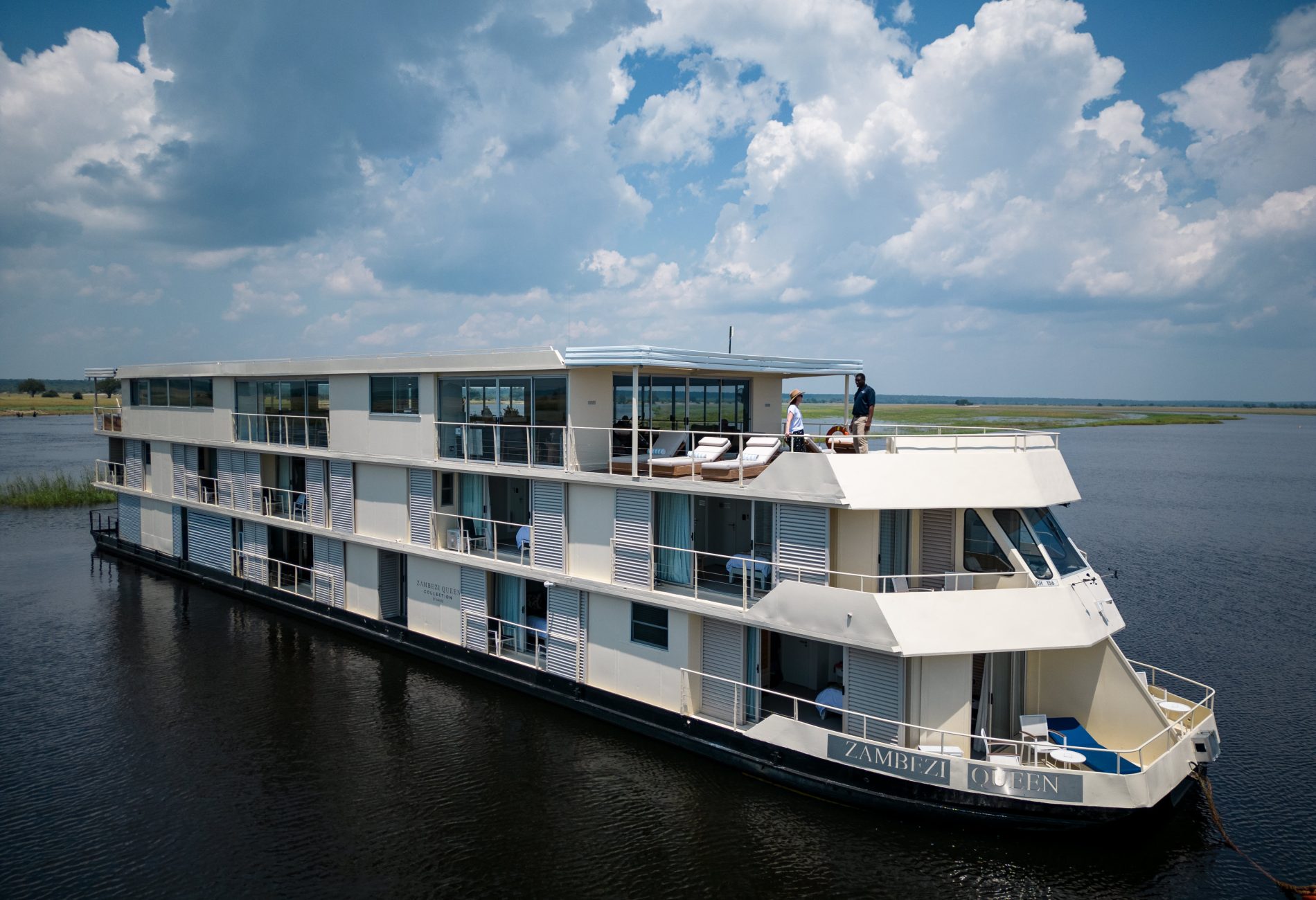5 March 2024
chobe river
The Chobe River holds deep meaning in Namibia’s complex colonial history. As early explorers like Dr David Livingstone travelled down the river in 1851, they witnessed political turmoil swirling between regional powers seeking control. The river marked disputed borders with Impalila Island a key site.
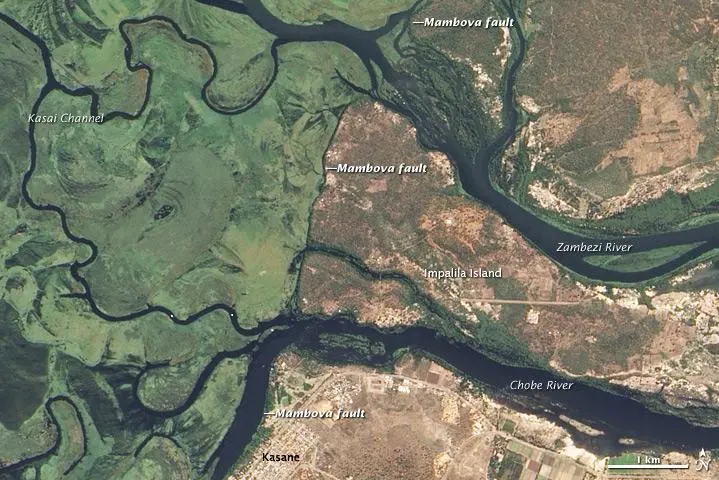
This Namibian promontory is found on the eastern tip of the Zambezi Region (previously known as the Caprivi Strip). It is a unique landmark in that it is here that you find the geographical quirk that allows four countries to come together – Namibia, Zambia, Zimbabwe and Botswana. The name Impalila means ‘unable to’ after the Sibuya word ‘Kwapila’ and refers to the fact that the island itself was a refuge for the original tribespeople as the two rivers on either side formed a natural defence system against attacking tribes.
Impalila Island was originally reputed to be the border between the Makalolo/Barotse empire and the Matabele empire of Mazilikatzi and then later the border between them and the tribes of Lobengula. There are many tales of skirmishes between these two nations.
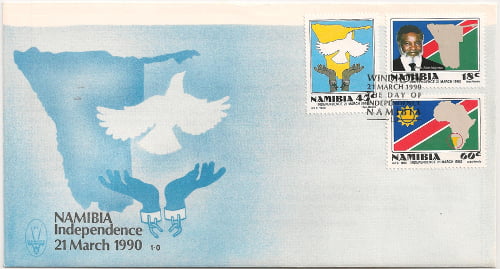
By the 1900s, European colonists like the Germans and later apartheid South African forces patrolled Namibian (then called South West Africa) border rivers like the Chobe to maintain dominance. However, uprisings escalated, demanding independence until negotiations finally succeeded in 1989, ceasing most regional conflicts. The next year, Namibia gained freedom, with the once hotly-contested Chobe now peacefully flowing through its border, supporting abundant wildlife.
Today, the serene river represents Namibia’s hard-won yet delicately sustained independence. Safaris here interweave admiring wild habitats with learning this history and celebrating cultural wealth crafted by Namibia’s groups over generations.
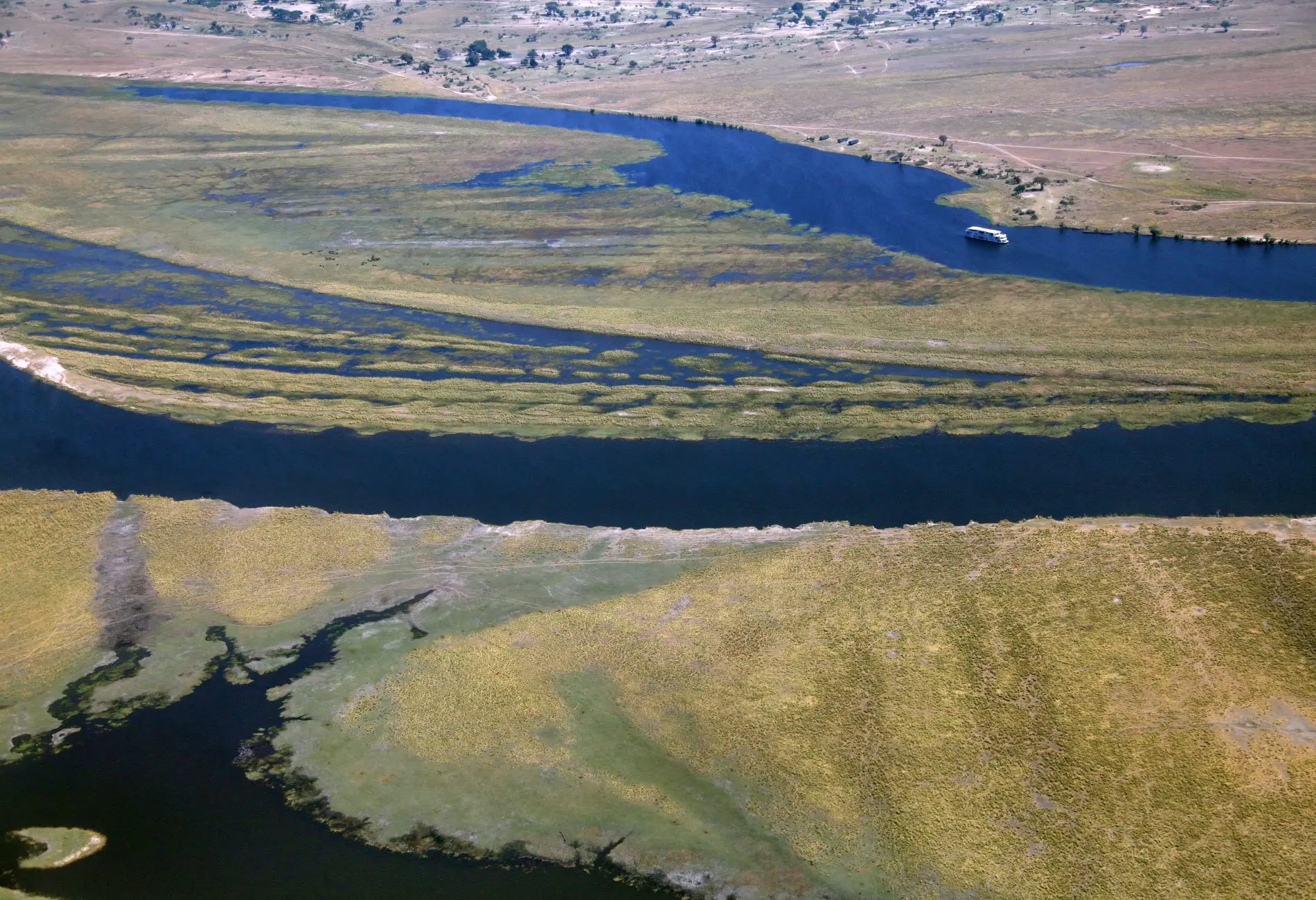
The Zambezi Queen Collection by Mantis is proud to be able to offer river safaris in this special corner of Africa and is acutely conscious of our duty to protect, support and honour the local communities, history and surroundings. We invest in local ownership models, training for careers and work closely with community leaders and landowners so tourism income directly uplifts local villages long-term, both ecologically and economically.
This month, we’d like you to meet some of our remarkable crew born along the winding Chobe as they explain what Namibian identity means to them.
Read related content: Chobe people, Chobe community
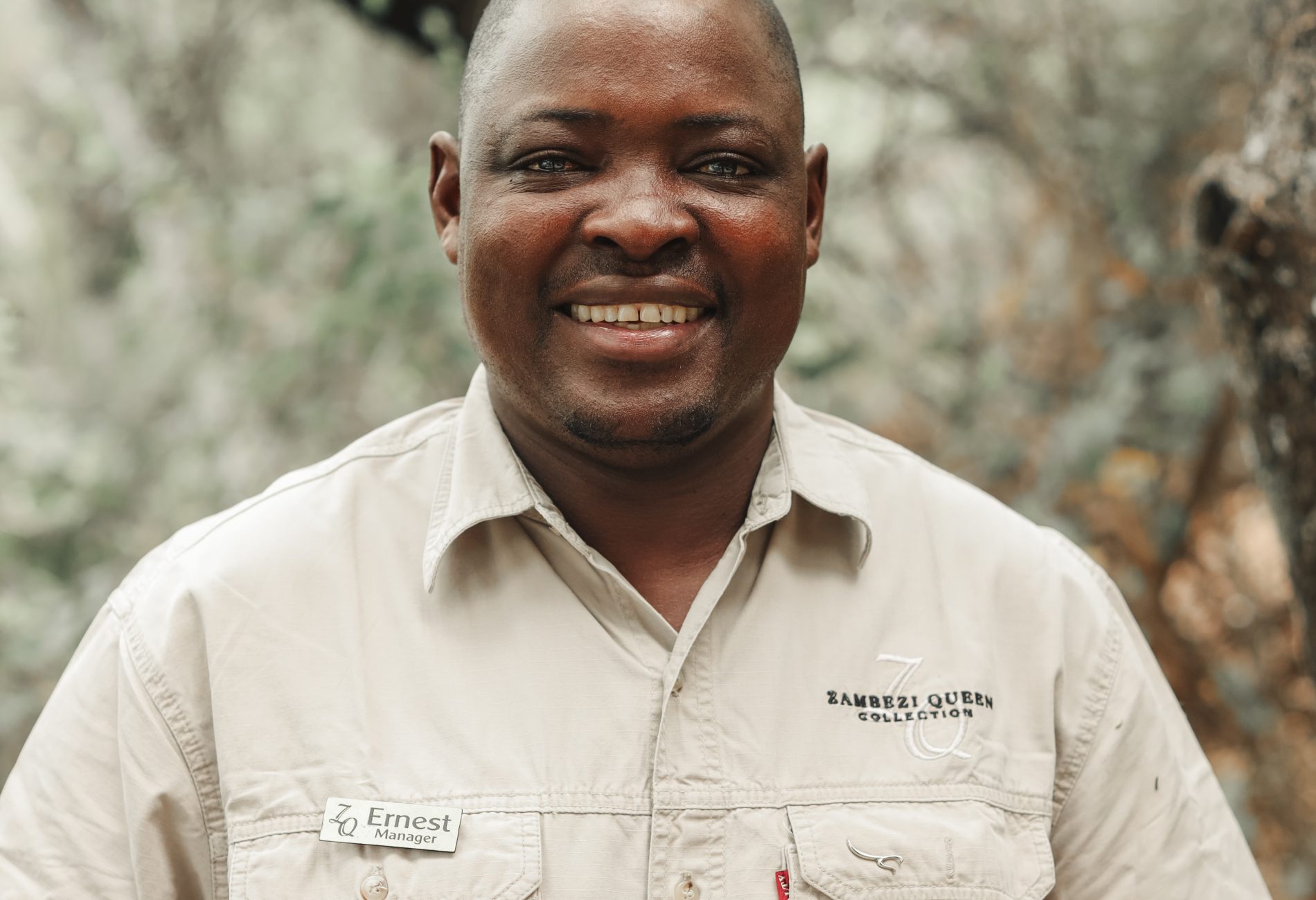
Manager of the Chobe Princesses and Ichingo Lodge, Ernest Sikanda, finds identity, like the Chobe River, transforms amidst exchanges. Studying abroad, his heritage attracted curiosity.
He shares: “To me, being Namibian means pride in a small tight-knit country. My identity shaped my life when I travelled to the UK to attend hospitality college. Classmates noticed I was from little-known Namibia and asked so many curious questions! I was proud to share our modern culture blended with ancient dance that is still practiced in villages today.”
Ernest continues highlighting unique aspects that swell Namibian pride: “We’ve got a stunning coast along the Atlantic and awe-inspiring nature like the Etosha Pan and Fish River Canyon. We’ve got tiny tribes like the Subiya people I am part of. We make up less than 1 percent of the entire population! Our mother tongue is Subiya which is not taught in schools today, so we always try to keep the stories and language flowing across the generations by speaking in this language at home.
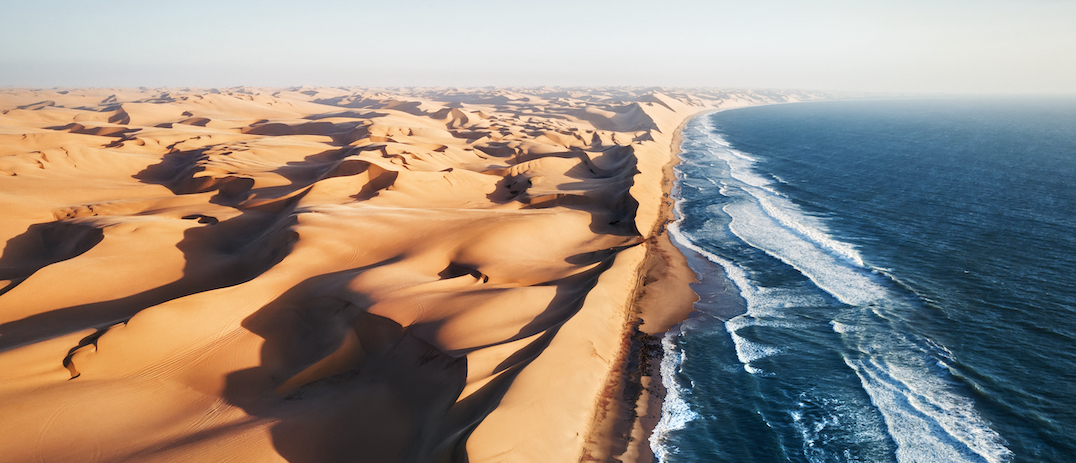
Ernest shares other challenges in keeping the cultural traditions alive. “Leadership has become challenging to pass down in our tribe. We lost our chief to COVID with no successor named. But women rise up, as our village *Induna is a woman now, as is the secretary.”
*Indunas are the village heads or executors of the village. They protect the heritage and preserve natural resources within their home range, e.g. forest, fish and other natural resources as well as solving social problems such as marriage and disciplinary action for any misconduct in the village.
The Indunas, in turn, report to the Chief of the Subiya, who resides in Bukalo, some 100 kilometres away. This traditional authority is still strong, and most disputes are resolved in their weekly Khuta meetings, where the Induna presides with various village elders.
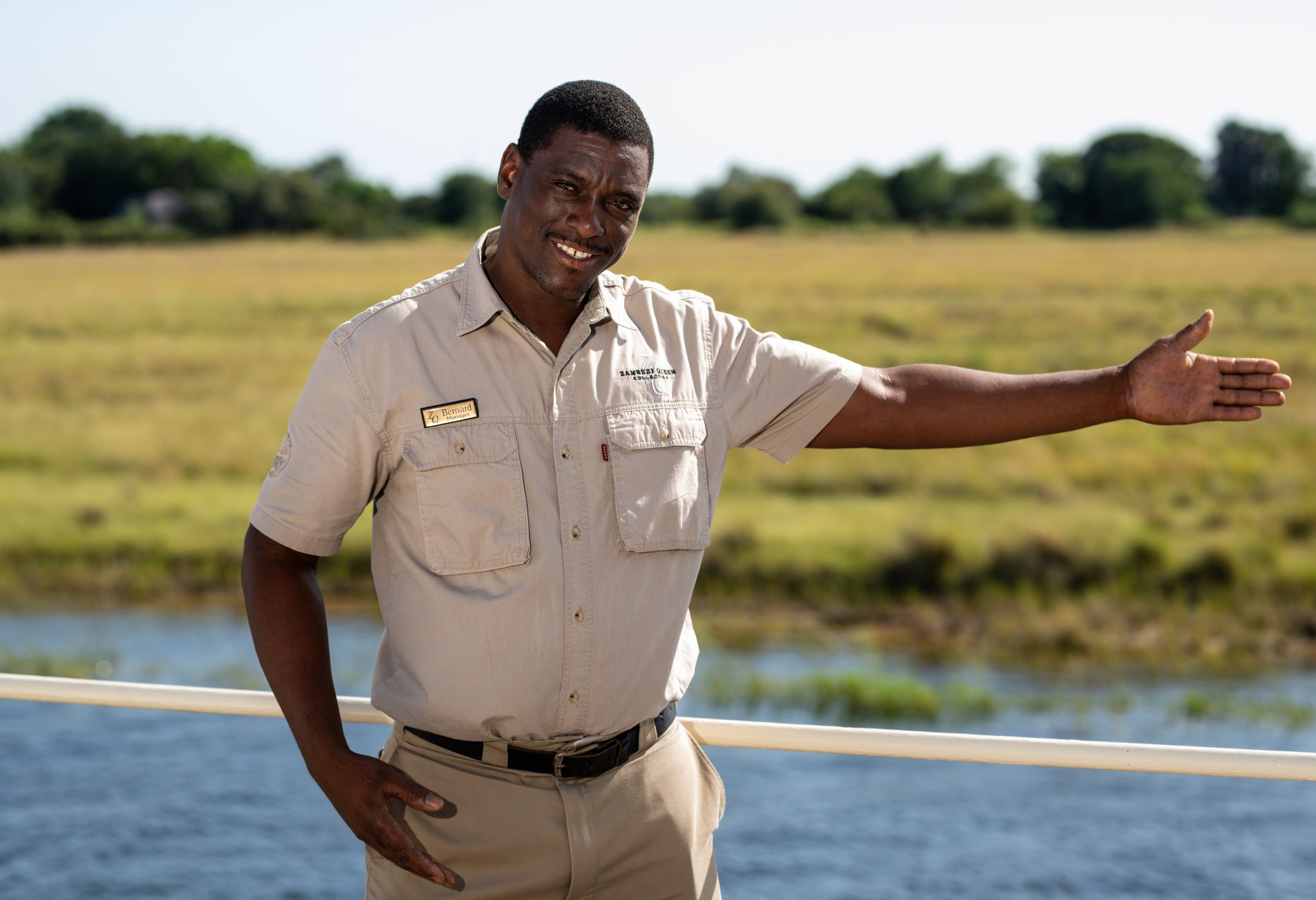
Bernard Kaiba: Safaris uplifting heritage and nature
As tourism showcases Namibia’s wildlife and land, preservation must sustain them, says Bernard Kaiba, Host on the Zambezi Queen.
“Namibians have persevered through history’s turmoil from colonialism to independence. Being Namibian means having great zeal to overcome!” exclaims Bernard. He strives to uplift communities through cultural tourism, explaining, “My village Ijambwe – one of the ancient villages in the Kabulabula area – promoted tourism way back in 1882 by sharing traditional dance! We were the first in our region to do so.”
When guiding visitors, Bernard educates them on conservation and the local traditions, laws and customs.
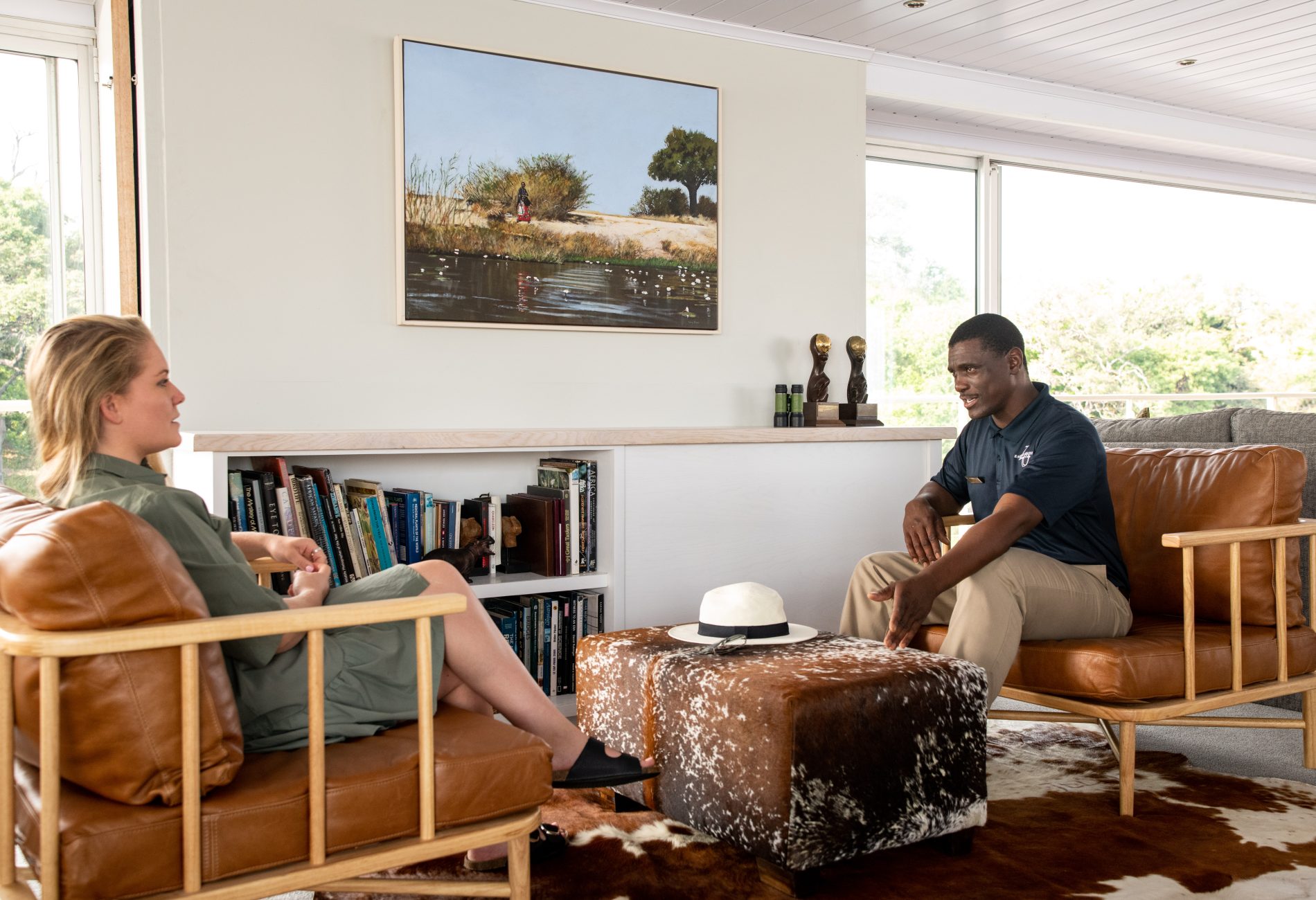
“I am so proud of my country as it’s a country with a unique landscape. Ranging from oceanic coast to mountain ranges, oases, woodland and savannas, deserts, rivers and wetlands. Due to the above-mentioned aspect, Namibia is a habitat for a variety of wildlife.”
As we celebrate progress on 21 March, may Namibia’s independence spirit persist flowing as the Chobe River over future generations.
Read related content: How sustainable travel generates happiness
Browse our specials and contact us today to plan your unforgettable Chobe River safari.
